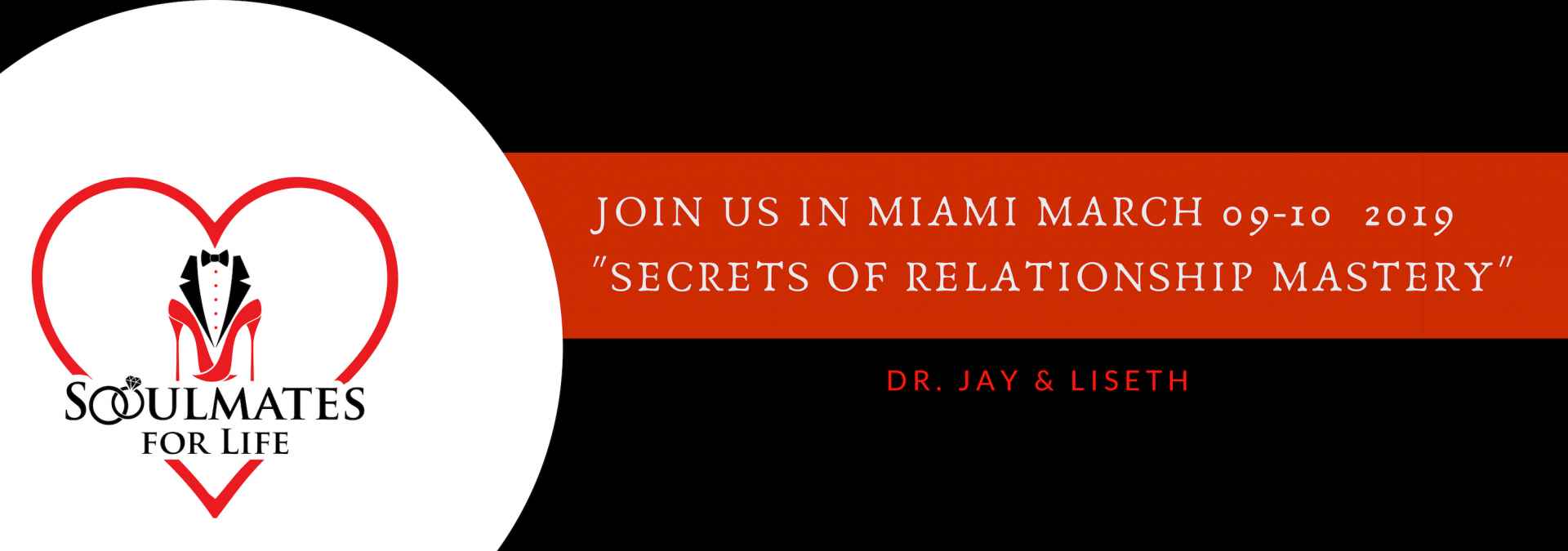Smart Erotica: The 7 Conversations of LIC #4: Sexuality vs. Eroticism


In our article Smart Erotica: The Modern Couple's Playbook we outlined seven conversations that our Lifestyle Inventory Check-up (LIC)© coaches couples to have to ensure a fun and productive erotic lifestyle experience.
The LIC guides you through a series of essential discussions that include the following:
- Alignment
- Unfiltered Communication
- Conflict
- Sexuality vs. Eroticism (you're here)
- Boundaries
- Agreements
- Routines & Rituals
Regardless of where you are on the erotic lifestyle continuum — from newbie to veteran, hot monogamy to CNM or even polyamory — the LIC and its “7 conversations” are essential tools that keep your relationship safe and lay the foundation for romantic pluralism that is quickly going mainstream in our culture with just over 20% or 1 in 5 people participating in a “consensual non-monogamous relationship” (Kinsey Institute and Journal of Sex and Marital Therapy, 2016).
“Wild things in captivity while they keep their own
wild purity won’t breed, they mope, they die.
The great cage of our domesticity kills sex …
the simplicity of desire is distorted and twisted awry …
Sex is a state of grace. In a cage it can’t take place.
Break the cage then, start in and try.”
– Wild Things In Captivity, D. H. Lawrence
Modern love is complex. In fact, we are in very uncharted territory when it comes to what for most of us is the most important part of our lives — the intimacy of a primary relationship. Most people rely on ONE person to provide what an entire village once did: a sense of belonging, connection, purpose, meaning, and vitality — being alive.
Simultaneously, we expect our committed relationships to be romantic as well as sexually charged, and emotionally fulfilling. We want excitement, novelty, passion, and lust with the same person we look to for comfort, continuity, and stability. Herein lies the core challenge of modern love, namely, how to balance and integrate risk within safety, mystery within the familiar, and novelty into the mundane of day-to-day life together. Difficult, yes. Impossible, no. And, that is especially true for couples in the erotic lifestyle as we delve into Conversation #4: Sexuality Vs. Eroticism of the Lifestyle Inventory Check-up (LIC)©.
The Death of Passion: The New Monogamy
Modern couples are socialized to tame their wild nature, replete with primal instincts for lust, adventure, conquest, dominance-submission, variety, and novel sensation. Ironically, it is only within our primitive nature — untamed and wild as it may be — where the source of erotic passion resides. And yet, many do not even recognize it is suffocating from convention and conformity to norms that no longer work.
Indeed, we are walking contradictions, seeking safety, certainty, and predictability on the one hand, while demanding excitement, variety, and diverse experiences on the other. And, as brilliant clinician and social philosopher Esther Perel wisely observes, “Many couples confuse love with merging. This mix-up is a bad omen for sex. To sustain an elan toward the other, there must be a synapse to cross. Eroticism thrives in the space between the self and the other.” (Mating in Captivity, 2006).
Many modern couples kill their passion while they follow the instinct to keep themselves safe in their primary relationships, demanding what amounts to mandates (rules) and prescriptive role expectations (“I’m not OK with you having long dinners with men/women if I’m not there”) that offer the illusion of control and constancy while imprisoning them in cages they have the key to unlock, but fail to understand they are their own jailers.
The real problem is an inability to manage the vulnerability that comes from owning your own desire and being responsible for your own self-care that many abandon when they partner with another. Passion is a derivative, not a birthright, and happens only when we merge the uncertainty of spontaneous actions and a willingness to embrace the unknown, rather than hide out and shielding ourselves behind edicts and demands for who our partners “should” be and what they “should or shouldn’t” do without our permission. Fire needs oxygen to breathe. So does passion within an intimate partnership.
To bridge this gap, we must change the conversations we allow and participate in with our partners. And, it means deepening the conversation around distinctions that illuminate nuance around what we need, desire, find hot, and turn us on or off, sexually speaking. One such conversation is the distinction around Sex and Eroticism, to which we now turn in Conversation # 4 of the LIC.
There’s a Difference Between Sex and Eroticism, and it Will Make or Break You
“The real voyage of discovery consists not in seeking
new landscapes, but in having new eyes.”
– Proust
A lot of couples we work with live with fuzzy definitions of monogamy and consensual non-monogamy. In fact, we have learned that many live with two separate “monogamy contracts” — explicit and implicit, that is, they agree to live within a model of relationship that may not support or allow for fantasies, needs, and desires they want to pursue, so they live a false reality and relegate their erotic needs to the shadowy recesses of their life (AKA hidden) and show up for vanilla sex with their spouses and partners. Incidentally, this is yet another way to kill passion off for sure — by bifurcating sex from erotica, which are quite different from one another. We believe that vibrant relationships happen only when you insist on integrating them, which requires a new level of transparency and vulnerability as we addressed in Conversation #3 on Conflict.
The erotic lifestyle offers couples an intriguing — albeit potentially treacherous — pathway between holding the polar tensions of committed love and its muting effect on erotic vitality. Until now, monogamy has been hijacked, resting on the prescriptive assumption that if you truly love someone, you should no longer be attracted to others. Sadly, in our culture, it often takes an affair or other betrayal revealing the intrigue and lore of such alliances to break open that conversation, rather than demonstrating relational EQ and having it beforehand. We vote for the latter if you are in the “right” conversation, which we are going to coach you on having with each other.
Sexuality: A Pathway to the Soul
At our most primal level, we need sex to procreate, and we are genetically predetermined to f#ck as a physiological act of progeny and survival. It also feels great to engage in, and sex can be a pathway to the heart and soul of your partner — especially when you link the physical act of sex to the emotive and imaginative domain of the erotic. Too often, these are split off from one another, so you either have great physical sex absent any heart and soul or, conversely, boring sex with a partner you really “like” and by whom you feel nurtured, absent any passion.
To make things more interesting, we all have idiosyncratic arousal templates (we’re turned on/off by very different and sometimes counterintuitive things) and, unless you get that arousal template right by knowing EXACTLY what your partner’s is, no matter how great a lover you think you are, it is likely you will shoot blanks and be guessing.
To be clear, sexuality is primarily about frequency (how often), performance (how flexible your repertoire is and what positions, places, toys, type of lube you prefer), duration (how long it lasts), quality (good vs. bad), and transactional (biological urges satisfied). The Sexuality conversation is necessary, but NOT sufficient to be the best lover you can be, regardless of how “sexy” you think you are. Nor is it sufficient to empower you and your partner to experience all the pleasure and desire possible if you are interested in being Soul Mates for Life. Necessary, yes. Important, absolutely. Sufficient by itself, definitely not.
Eroticism: The Portal to the Pathway
The other side of resurrecting desire from the death of passion is a deeper understanding and appreciation of Eroticism. Fortunately for us, brave pioneers in the field of psychology are beginning to offer roadmaps and models for couples to peruse as they explore the white space of the New Monogamy, where many are rewriting the rules and norms for what it means to be in relationship.
“Monogamy may or may not be natural to human beings, but transgression surely is. … Desire is fueled by the unknown, and for that reason, it is inherently anxiety-producing … and our willingness to engage that mystery keeps desire alive. … When we resist the urge to control, when we keep ourselves open, we preserve the possibility of discovery. ... Eroticism resides in the ambiguous space between anxiety and fascination.”
– Esther Perel
Mating in Captivity and The State of Affairs
By contrast, Eroticism has to do with our ability to reconnect with pleasure, playfulness, creativity, and abandon as it relates to our bodies, minds, spirits, and emotions. To be erotic is to bring all of our senses to the physical act of sex. It is allowing and evoking the Daimon of Eros to manifest in your relationship by nurturing sensuality, passion, spontaneity, imagination, and creativity within your sexuality together. It is bringing soul to sex. It is making it safe in the emotional terrain between you to be fully self-expressed, raw, and give permission for un-bastardized energy to take you both places only seen within your fantasies and images of desire that are often held in private psychological real estate, and letting them be known and experienced together as an act of honor, love, and mutual respect that comes from sharing them in unison.
“We are indeed a nation that prides itself on efficiency. But here’s the catch: eroticism is inefficient. It loves the squander time and resources … Eroticism is an imaginative act, and you can’t measure it. We glorify efficiency and fail to recognize that the erotic space is a radiant interlude in which we luxuriate, indifferent to demands of productivity; pleasure is the only goal. Octavio Paz writes, ‘The moment of merging is a crack in time, a balm against the wounds inflicted by the minutes and hours of time. A moment totally eternal as it is ephemeral’. It is a leap into a world beyond.”
– Esther Perel
Mating in Captivity
Erotic intimacy can be thought of as the marriage between Sex and Erotica in such a way that it heals the split that too often divides it — where we reveal core parts of ourselves through the language of sexuality. Eroticism is a psychological treasure that brings the bifurcation that buries this rich source of energetic knowledge and vibrant energy into the open so that it can be experienced, enjoyed, and celebrated within the context of your unique “monogamy contract” — as you and your partner define it and choose to experience.
It is where core aspects of “self” are revealed through sexual space, and the erotic becomes the conduit through which you can literally touch the soul of your lover via the risk-taking, trust, and self-revelation that robust sexuality offers to those open to experiencing its many gifts. Eroticism seen through this lens shifts from a transactional act to a transformational merger, where the raw and instinctual merge with the spiritual and vitalizing — the very place where passion and vitality lives.
What this all means is we MUST become much better at practicing the art and science of love if we want our relationships to deliver all that we demand from them. Here’s the deal: The more complex the terrain of your relationship is (e.g., like being in the erotic lifestyle), the more sophisticated your communication has to become to successfully navigate it. Learning the difference between Sex and Eroticism is a huge step in that direction because it is necessary to become proficient at BOTH to have an extraordinary relationship.
Today, couples have choices about how to live their lives. It IS possible to be passionate lovers, best friends, enjoy erotic experiences together, and live consistent with your highest values. The erotic lifestyle provides couples access to a virtual playground of opportunity with sensual adventure, meaningful friends, and rich learning together. However, the territory does present risks many within the lifestyle either do not see, are unfamiliar with, or do not have the skill-sets to successfully navigate. Conversation #4: Sexuality vs. Eroticism is designed to put you at the epicenter of the “right” conversation about the “right” issues, starting right now:
Questions to Ask Yourself, First
- Spend a few minutes and think about what these words mean to you. Your answers will bring Conversation #4 to life. For each, put your pen to paper and whatever comes out, let it flow. How do you define these things for yourself?
- Love …
- Sex …
- Intimacy …
- Passion …
- Erotic …
- Play …
- Consensual Non-Monogamy …
- Is it possible to have both love and desire in the same relationship over time, and what exactly would that kind of relationship look like?
- If you decide to include other people in your relationship (consensual non-monogamy), how do you propose to explore and stretch your boundaries while enriching — not threatening — your primary relationship? What does the ideal situation look like to you?
- What is the best way to balance novelty, variety, and eroticism with exclusivity, boundaries, and accountability to each other?
Questions to Ask and Answer to Each Other
First, share with each other your answers to the questions above. Listen and take notes only.
Then, together, answer the following questions, each taking a turn to speak and listen:
- “When I am most turned on is when … When I am most turned off is when” …
- “What I enjoy and like most sexually is” …
- “What I find really erotic/sensual is” …
- “When I think of Love/Sex/Erotica/Play/Intimacy, I think of” …
“What I want in our sexual life together is … What I want in our erotic life together is”…
About the Program
The Smart Erotica Program© is a practical, common sense approach that systematically coaches participants through the “7 Conversations” of the Lifestyle Inventory Check-Up® (LIC), in the safety of a structured, confidential, professional methodology based on decades of relationship science and work with couples globally.
The program delivers an emotional and mental framework for being in the “right” conversations about the “right” issues in the “right” way to successfully navigate the delicate balance between love, sex, eroticism and sensual expression grounded in a relationship design of your choosing.
Live passionately,
Dr. Jay and Liseth
Soul-Mates For Life








